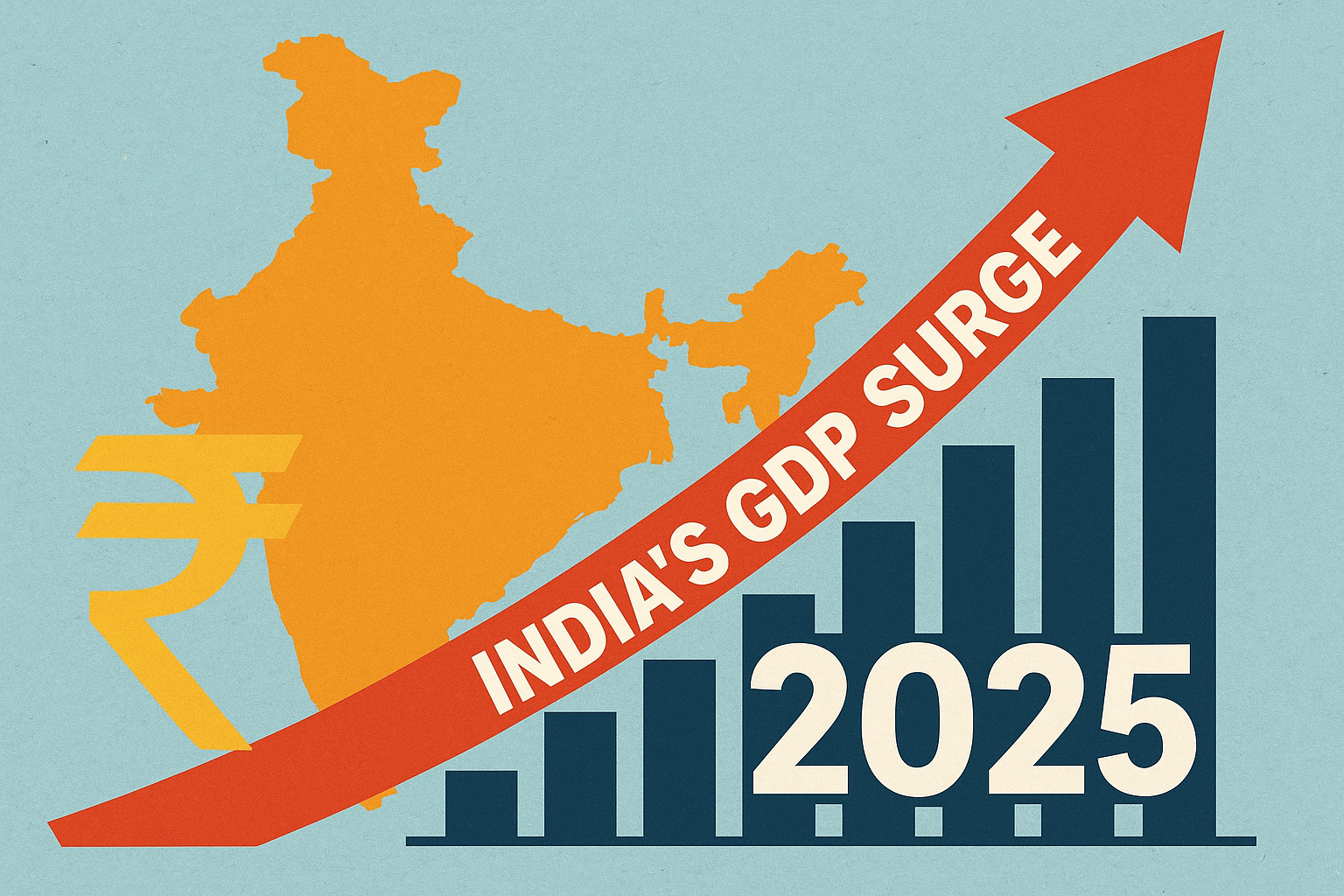Money isn’t just numbers — it’s human behavior. If you think managing wealth is only about spreadsheets and stock charts, you’re missing the real driver: how you think and act.
In The Psychology of Money, Morgan Housel explains that doing well with money is not about being the smartest person in the room. It’s about staying calm, controlling your feelings, and not letting fear or greed take over. Let’s break down some of its most eye-opening lessons from the book and see how you can spot and fix your investing bling spots.
-
How Behavioral Foundations of Wealth Are Made
Financial success isn’t rocket science; it’s about habits – and your financial mindset plays a huge role.
Traditional education teaches you what to do, but not how to stick with it when real life happens. Back in 2008, many investors sold their stocks in a panic even though they knew it was wring move. Their fear drove them to make poor decisions – a classic example of how emotions affect money decisions.
Even smart people panic or get greedy. So the gap isn’t knowledge — it’s self-control.
-
No One’s Crazy in Investing
People aren’t crazy — they’re just shaped by their own unique stories and financial mindset.
A person who grew up watching their family lose a house in a recession may hate debt and love savings. Someone raised during an economic boom may be more comfortable with risky bets.
This explains why older generations might prefer gold or real estate, while younger investors love index funds or crypto. The next time you hear a “bad” money decision, pause — they probably have a reason you can’t see.
-
Luck and Risk: Investments
Sometimes success is skill — sometimes it’s luck.
Bill Gates had rare early access to a computer in high school — one in a million at the time. That chance changed his life. There were plenty of smart kids then who didn’t have that opportunity.
In the same way, you can do everything right and still lose money on an investment because markets can’t be controlled. That’s why The Psychology of Money says: Respect uncertainty.
Focus on good behavior and repeatable habits, not just flashy wins.
-
Why Wealth Is Never Enough for Some People
Having more money is not always better if you don’t know what ‘enough’ means. Without a clear idea of when to stop, you’ll just keep chasing more and never feel happy.
Bernie Madoff is the ultimate example — he lost everything just to get more, even when he already had more than enough. A simple truth from the book: “There is no reason to risk what you have and need for what you don’t have and don’t need.”
Every year, we see people in the news lose fortunes because they never decided what “enough” looked like for them. Define it — or someone else will define it for you, by tempting you to keep spending, comparing, and risking more than you need.
This idea is rooted in the saving vs spending psychology – a reflection of your financial mindset.
-
Compounding: The Hidden Force
Big results don’t come from huge risks; they come from staying invested for a long time and letting small wins add up.
Warren Buffett earned most of his billions after turning 60. Not because he found a magic stock but because he stayed invested for decades.
A more ordinary example? Millions of SIP investors in India quietly build crores by investing just a few thousand rupees every month. It’s not luck, secret tips, or genius stock picks – it’s simply consistency and patience.
The truth is, the best returns aren’t always the highest ones — they’re the ones that keep coming in for the longest time without blowing up your plan.
-
Getting Wealthy vs. Staying Wealthy
Becoming rich and staying rich need different mindsets. You grow your wealth by taking smart risks, starting businesses, trying new things, and believing in yourself. But once you have money, the goal changes to protecting it.
That means being careful, staying humble, and preparing for surprises – like when the COVID-19 pandemic caused countless businesses to close overnight. But families who had some savings set aside got through it. That’s the “margin of safety” Housel talks about: your buffer when life doesn’t go to plan.
-
Odds in Investing Drive Everything
Not every investment will be a winner, and that’s normal. Most big successes come from just a few great bets.
Bill Gates was a once-in-a-generation hit. In venture capital, one startup win covers 20 failed ones. In your portfolio, one stock may outperform the rest.
So don’t expect every stock to be amazing. Be okay with small, frequent losses – they often pave the way for big wins down the road.
Stay diversified, stay patient — and let winners run. Keeping this in mind helps you avoid letting your emotions interfere – another example of how emotions affect money decisions.
-
Freedom: The Ultimate Dividend of Wealth
Money’s real benefit is freedom — not things.
The Psychology of Money explains that when you control your time, you’re rich in the only way that matters.
That’s why many people aim to retire early — not to sit on a beach forever, but to work on their own terms.
So spend less on looking rich and more on buying your freedom back.
-
Man in the Car Paradox
When you see someone in a luxury car, you don’t think, “They must be successful.” Instead, you think, “I’d look great driving that car.”
This is the Man in the Car Paradox. People spent a lot to impress others, hoping to earn respect with fancy things. But the truth is, real respect doesn’t come from what you show off – it comes from who you are.
Quiet wealth is real wealth. The saving vs spending psychology reminds us that smart savers aren’t cheap — they’re simply intentional about how they manage their money.
-
Save Money: The Ultimate Financial Strategy
Income helps — but saving is the true secret to building wealth.
Many people earn big salaries yet live paycheck to paycheck because they spend every rupee they make. Meanwhile, a teacher or a regular office worker who saves 30% of a modest salary often ends up more financially secure than high earners who save nothing.
Money you don’t spend today becomes your freedom tomorrow. A good savings habit gives you the power to say “no” to bad jobs, bad bosses, and bad risks.
-
Reasonable > Rational
People aren’t robots. We don’t always make perfect choices on paper and that’s completely fine.
For example, paying off your home loan early might not earn you the most money compared to investing it somewhere else. But if it helps you sleep better at night, it’s worth it. Some people prefer safer, steady investments because they don’t like the ups and downs of the market and that’s perfectly fine.
The Psychology of Money reminds us that a plan you can stick with for years is better than a perfect plan you abandon when it gets too stressful. Good and steady is better than perfect but impossible.
-
You and Me
What’s rational for you might not work for someone else.
A day trader looks at the market minute by minute. A retiree looks at it decade by decade. Not all money advice fits everyone. For example, saving aggressively for retirement might be smart for someone in their 50s, but if you’re in your 20s and trying to pay off student loans, it might not be the best move. Before following any tip or trend, think about your own goals, timeline, and comfort with risk. If it doesn’t feel right, it’s okay to say no.”
-
Confounding Compounding
The hardest part of compounding is patience.
Skipping your ₹200 daily coffee doesn’t feel like much. But saving and investing that small amount over 30 years can grow into lakhs or crores.
The trick is staying consistent when the results feel invisible. Compounding works slowly — then suddenly.
Conclusion: Mastering Money Behavior
The Psychology of Money shows us that mastering money means mastering yourself.
You don’t need to outsmart the stock market — you need to out-discipline your fears, envy, and impatience. Stay humble. Be patient. Keep showing up.
And always remember: the behavior you practice daily shapes your wealth story tomorrow.
Take a moment today to think about what “enough” really means to you — and trust that small, steady steps will get you where you want to be.
- Make in India 2.0: How Manufacturing Is Reshaping Market Sentiment - December 13, 2025
- Real Estate Boom : Why Tier-2 Cities Are Attracting Big Investors - December 12, 2025
- India’s GDP Surge 2025: What the New Growth Numbers Mean for Markets - December 9, 2025





